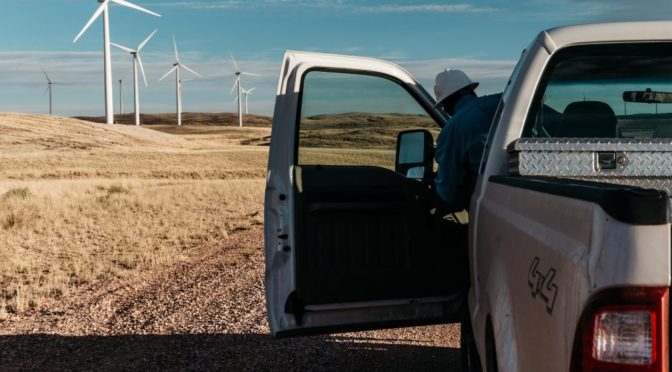At The University of Texas Permian Basin (UTPB) we are committed to strengthening and diversifying how we impact our students, our community and our global efforts. As we’ve experienced the pandemic and oil and gas downturn, we are witnessing firsthand the importance of this commitment, and it feels more important than ever to align with our mission: research locally and export globally.
Renewable energy, especially wind, provides our university an opportunity to meet these goals. Wind is one of the fastest growing energy resources in the world with numerous benefits to the economy and environment, and this is an industry we have seen sprout up in our own backyard.
Wind energy has begun to play an immense role in Texas. The state ranks number one in the nation for energy production and fifth in the world, behind only China, Germany, the United States, and India. Seventeen percent of Texas’ electricity demands are met by wind power — and that number is growing every year.
West Texas is a prime location for wind energy research and investment due to abundant available natural wind with feasible speed, vast area, and a workforce that knows energy.
As Deans of both the College of Arts and Sciences and the College of Engineering, we believe that alternative energy is fundamental to the future of our departments and UTPB. It is vital that we lay the groundwork for tomorrow, today.
At the College of Engineering, we are conducting research around how renewable energy such as solar and wind can be harvested and utilized for treatment of oilfield water. Application of renewable energy to treat water from non-renewable energy source is a cost effective and environmentally friendly technology option, and we are developing additional curriculum surrounding wind energy for our students. Paths toward the wind industry can arise from many cross-discipline engineering programs that range from mechanical (blade design, fluid mechanics) to electrical (energy conversion and storage) to chemical (produced water treatment) engineering. It’s important for us to continue this expansion of knowledge and research within the University as we look to shape the future.
At the College of Arts and Sciences, our Geology Department is establishing an alternative energy track that includes wind energy. Texas is a very strong contender in wind and solar power, and the state is an indication of where energy is going in general. It is crucial that our geosciences program is geared toward the future to address current and future challenges.
Recently, the College of Engineering partnered with XTO Energy to organize an virtual summer camp as a part of our outreach efforts to attract K-12 students. This summer camp includes a wind energy project where middle and high school students were engaged to assemble and operate a small-scale windmill that could charge their cell phones, while socially distancing in their own homes. We’ve seen immense interest from the students in this area and beyond of energy production, and we are excited to continue to build upon this program next year. Because the camp is virtual, we had students from Austin, Chicago, and Tennessee participate in the program this year.
As an institution, we are committed to addressing issues in our community and beyond through the creation of Texas Water and Energy Institute and Advanced Manufacturing Center that would support not just the oil and gas industry, but also renewable energy through new wind turbine designs and systems. These multi-disciplinary institutes is housed in the College of Engineering.
Economic opportunity at this scale does not come along every day or without the efforts of many Texans. When it does, it’s important that we — as educators and as members of the community — do all we can to support it.
We’re celebrating American Wind Week this week, August 10-14, and we hope you will join us. We’re looking forward to the future we can build in the Permian Basin and across the globe through education and research. Thanks to effective leadership, abundant resources and a capable workforce, wind power will be a big part of that bright future at UTPB for many years to come.
By Scott McKay and George Nnanna

Scott McKay is dean of UTPB’s College of Arts & Sciences and George Nnanna is dean of the College of Engineering.


